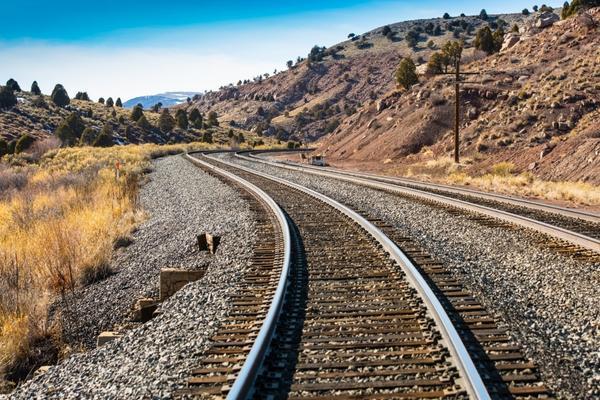Key Takeaways:
- Two massive labor disputes threaten supply chains in the United States.
- The labor disputes involve the railroads and the ports.
- This is a terrible time for disruption with the harvest season and the upcoming holiday season.
Two huge labor disputes, in the railways and at the ports, threaten to re-tangle supply chains in the U.S.
The White House is pushing to avert supply chain disruptions that could result in a disaster. There is a lot at stake economically.
An industry estimate says that a shutdown of the U.S. rail system could cost $2 billion a day, and we’ve already seen what backed-up ports do to the economy during the COVID-19 crisis.
Politically, a work stoppage would be bad news for a pro-worker White House that wants to control inflation and avoid bottlenecks.
Labor unions and railroads worked all weekend to avoid a strike, but there were few signs of progress.
Before a possible walkout later this week, the companies are warning customers today that they may have trouble getting service.
Sunday, Norfolk Southern said in an online notice that it “has begun implementing its contingency plans for a controlled shutdown of our network at 00:01 on Friday, September 16.”
Union Pacific and CSX also said they were planning a possible strike. BNSF asked its customers to call their representatives in Congress to stop any delays.
Port workers on the West Coast have been in negotiations for a new contract.
The last contract expired in June.
“A shutdown of our freight rail system is an unacceptable outcome for our economy and the American people,” a White House official said over the weekend.
“The Administration has been actively engaged, pushing for a resolution. All parties need to stay at the table, resolve outstanding issues and come to an agreement.”
Railroads Move A Substantial Amount Of All Freight
In 2020, trains moved about 28% of all freight in the U.S., making them the second-busiest mode of transport after trucks.
Half of that traffic moves bulk goods, like food, energy, chemicals, metals, wood products, industrial parts, and automobiles.
Most of the other 50% is made up of smaller consumer goods that are shipped in shipping containers. Even if there isn’t a strike, the freight rail system in the United States still has problems.
For example, the shipping company Maersk said earlier this month that it was stopping import bookings through Fort Worth, Texas, because of “severe congestion” at rail ramps and container yards in the area.
If the railroads go on strike, the trucking industry would have to pick up the slack.
This would be expensive, and there isn’t enough room to handle all the extra stuff.
The trade group points out that a single trailer on a freight train can hold 2,000 UPS packages.
75% of new cars are moved on the rails as the auto supply chain is getting back on track.
10 of the 12 unions representing thousands of workers have reached new labor deals.
However, the Brotherhood of Locomotive Engineers and Trainmen and the International Association of Sheet Metal, Air, Rail, and Transportation Workers are still not on board.
Together, these two unions represent more than 90,000 rail workers.
In a joint statement released on Sunday, the groups didn’t hold back, calling the railroads’ scare tactics during negotiations “corporate terrorism.”
It’s not a good time to have supply chain bottlenecks.
This Is Not A Good Time For Disruption
The harvest season is coming up in the farm belt, stores are stocking up for the holidays at the end of the year, and the economy is already in for a stretch of slow growth and high inflation.
The last thing we need is a battered supply chain.
In modern times, the White House usually stays out of labor talks, jumping in only at the last minute to help both sides reach an agreement.
But the Biden administration is handling these disputes differently, not just because this president has been so vocal about his support for unions.
In May, the White House chose a “port czar” to watch over the supply chain.
Alexander Shunnarah Trial Attorneys
References:
https://www.axios.com/2022/09/12/possibility-of-railway-and-port-strikes-threaten-supply-chain-recovery
